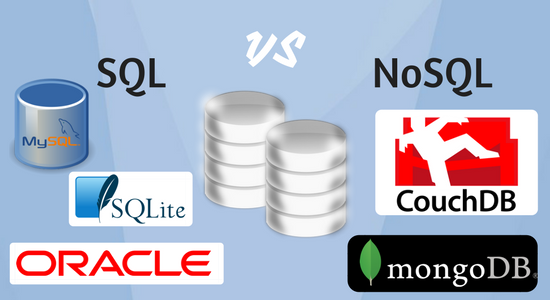Archives
- Newer posts
- June 2025
- May 2025
- November 2024
- April 2024
- November 2023
- October 2023
- August 2023
- May 2023
- February 2023
- October 2022
- August 2022
- July 2022
- May 2022
- April 2022
- March 2022
- February 2022
- June 2020
- March 2020
- February 2020
- January 2020
- December 2019
- November 2019
- October 2019
- September 2019
- August 2019
- July 2019
- June 2019
- May 2019
- April 2019
- March 2019
- February 2019
- January 2019
- December 2018
- November 2018
- October 2018
- September 2018
- August 2018
- July 2018
- June 2018
- May 2018
- April 2018
- March 2018
- February 2018
- January 2018
- December 2017
- November 2017
- October 2017
- September 2017
- August 2017
- July 2017
- June 2017
- May 2017
- April 2017
- March 2017
- February 2017
- January 2017
- August 2016
- June 2016
- April 2016
- March 2016
- February 2016
- January 2016
- July 2015
- June 2015
- Older posts

SQL VS NoSQL
SQL-Structured Query Language is a special-purpose programming language designed for managing data held in a relational database management system (RDBMS), or for stream processing in a relational data stream management system (RDSMS). NoSQL (“non-SQL” or “non-relational”) database provides a mechanism for storage and retrieval of data that is modelled by means other than the tabular relations used in relational databases.
The most important question that everyone seems to be asking, “is SQL a thing of the past, and are NoSQL solutions the way forward?”. SQL and NoSQL do the same thing i.e. store data using different approaches, which may help or hinder your project. NoSQL is not a replacement for SQL, it is just an alternative.
There is no clear distinction between SQL and NoSQL as some NoSQL features are being adopted by some SQL databases and vice versa.
SQL databases are table based databases consisting of n number of rows and columns, whereas NoSQL databases are document based, key-value pairs, graph, wide-column stores or columnar. In an SQL database, it’s impossible to add data until you define tables and field types, whereas, in a NoSQL database, data can be added anywhere, at any time without even specifying a document design as each document can have a completely different structure.
For the complex query intensive environment, SQL databases are better suited.
Examples of SQL are MySql, Oracle, Sqlite and examples of NoSQL database are MongoDB and CouchDB.
If your data needs are changing rapidly or growing fast maybe NoSQL will be more suitable for you. But if the data you have isn’t changing in structure and there is manageable growth, SQL technologies may fulfil your needs best.
